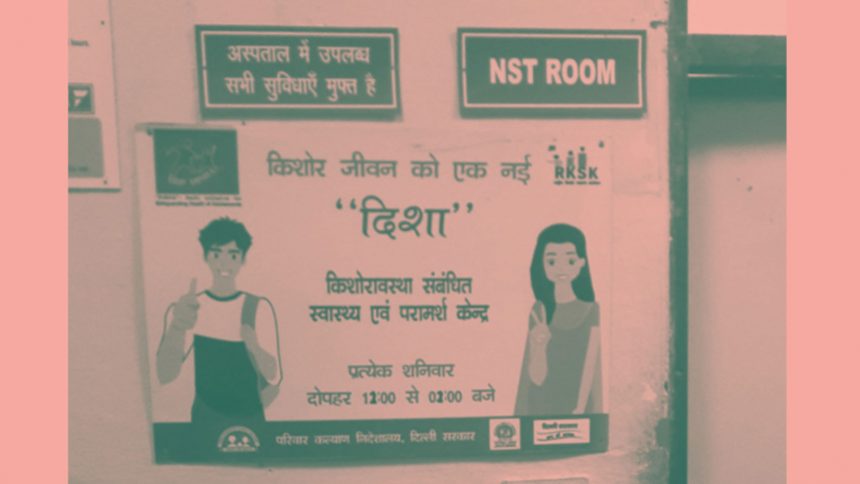“When I told her that I desire men and I want to know about safe sex between two men, she said that sex is not wrong, but ‘this’ is wrong. You can maintain friendship with a boy but do not have sex with him because ‘this’ is wrong. You can try to think and increase your attraction towards women”. (Unmarried male, 21 years, Adolescent Friendly Health Clinic, North East Delhi)
“She was polite and attentive. My session with her lasted for 15 minutes. There was no one else in the room and only one patient was allowed inside. She asked my age, marital status and sexual history. I did not see any change in her attitude after I told her that I am unmarried and sexually active. She did not do any unnecessary enquiry that was done by the doctor. She prescribed me medicines and told me to use condoms before sex”. (Female, 25 years, Adolescent Friendly Health Clinic, North West Delhi)
A youth-led audit on adolescent and youth-friendly health services in Delhi and Varanasi. It was conducted to assess the quality of health services and identify the structural gaps in the delivery of sexual and reproductive health for young people. In the last one decade, the Government of India (GoI) has focused on providing adolescent-friendly services to improve health seeking behavior as priority in programmes such as Adolescent Reproductive and Sexual Health (ARSH, 2007) as well as Rashtriya Kishor Swasthya Karyakram (RKSK, 2014).
Evidence gathered by young people shows that multiple gaps exist in accessing quality services. The counselors and doctors have their own preconceived notions and discomfort related to sexuality issues including premarital sex, same sex relationships, myths on abortion etc. In 48% instances for example, they were asked their marital status. Experiences of moral policing of girls for being sexually active and denial of counselling services to unmarried girls was a very common experience. Moreover, only 21% respondents of the study were satisfied with the information they received for questions around irregular menstrual cycle, hormonal and non-hormonal contraception, abortion methods etc. Only 30% reported that they felt respected by the services providers which included majority of men. 38% were satisfied with the privacy and confidentiality in seeking the services.
“My session lasted only for 5 minutes. The doctor did not even ask me to sit. She first questioned as to why I needed this information. I said that I am going to get married soon. She said okay, use condom and Copper T. You can come with your husband after marriage”. (Unmarried female, 23 years, Adolescent Friendly Health Clinic, North West Delhi)
There are also legal issues and conflicts that do not allow adolescents below 18 to access sexual and reproductive health services. Protection of Children from Sexual Offences Act (POCSO 2012) is a law which primarily seeks to protect children (any person below the age of eighteen) from sexual abuse. A provision in the law on mandatory reporting however, makes it difficult to access SRH services by women below the age of eighteen as the law makes it mandatory for the service providers in case of any sexual encounter as abuse, irrespective of the girl’s consent. A failure to do so by service providers is considered a crime under Section 21 of the Act. This has resulted in making the delivery of SRH services by the service providers like HIV testing or abortion to people below 18 years difficult. Therefore, it is of significance that laws like POCSO which are important for protection from sexual abuse ensure that it does not take away the sexual autonomy of young people or criminalise consenting relationships of young people.
To ensure an improvement in health seeking behavior amongst young people and affirming their access to health services as a right, it is critically important to address the structural gaps that exist and review programmes, policies and laws according to the needs and challenges of young people. It is also important for the service providers to not ask marital status, delink and understand sexual and reproductive health outside the framework of marriage as well as destigmatise unmarried young people’s sexuality and their access to health services.
Written by – Shruti Arora. She leads “The Access Project” at the YP Foundation.

